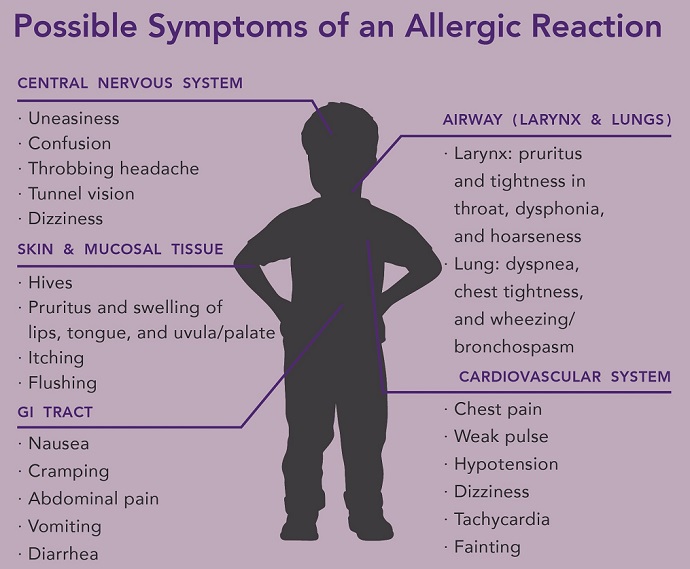Food allergies are a serious matter. Since data was first collected in 1997, the incidence of food allergies in American children has risen sevenfold.
Food Allergy Facts
SAGE’s research of its client population has found a frequency of 1 in 12 students for the 12 top food allergens: eggs, fish, gluten, milk, mustard, peanuts, sesame, shellfish, soy, sulfites, tree nuts, and wheat.
Most fatal food-allergic reactions are triggered by food consumed outside the home, where the individual has much less control over ingredients and cooking methods. In fact, more than 15% of school-aged children with food allergies have had a reaction in school.
Exposure to an allergen can result in a severe, potentially fatal allergic reaction called anaphylaxis. That’s why people with a food allergy must have quick access to an epinephrine autoinjector (such as an EpiPen® or Auvi-Q®) at all times. To prevent a reaction, strict avoidance of the allergen is essential.
Possible Symptoms of an Allergic Reaction

In Other Words
Children, especially young ones, may not have the language to accurately describe their reaction. Preverbal children may put their hands in their mouths or pull on their tongues. Older children may struggle to convey the unusual sensations they’re experiencing.
Food Allergy Research & Education® (FARE) recommends that you listen for the following, especially in combination with any additional symptoms.
- “This food is too spicy;”
- “My tongue/mouth is hot/burning/tingling/itchy;”
- “My tongue feels heavy/full/thick/fuzzy/funny;”
- “Something’s poking my tongue;”
- “There’s something stuck in my throat;”
- “My lips feel tight;”
- “It feels like there are bugs in my ears.”
Take Action
Some allergic reactions are fatal, so it’s important to seek help immediately if you suspect one. If the student has an epinephrine autoinjector, read the instructions and administer it. Then call 911. Even if the student seems better, he or she must go to the emergency room immediately.







